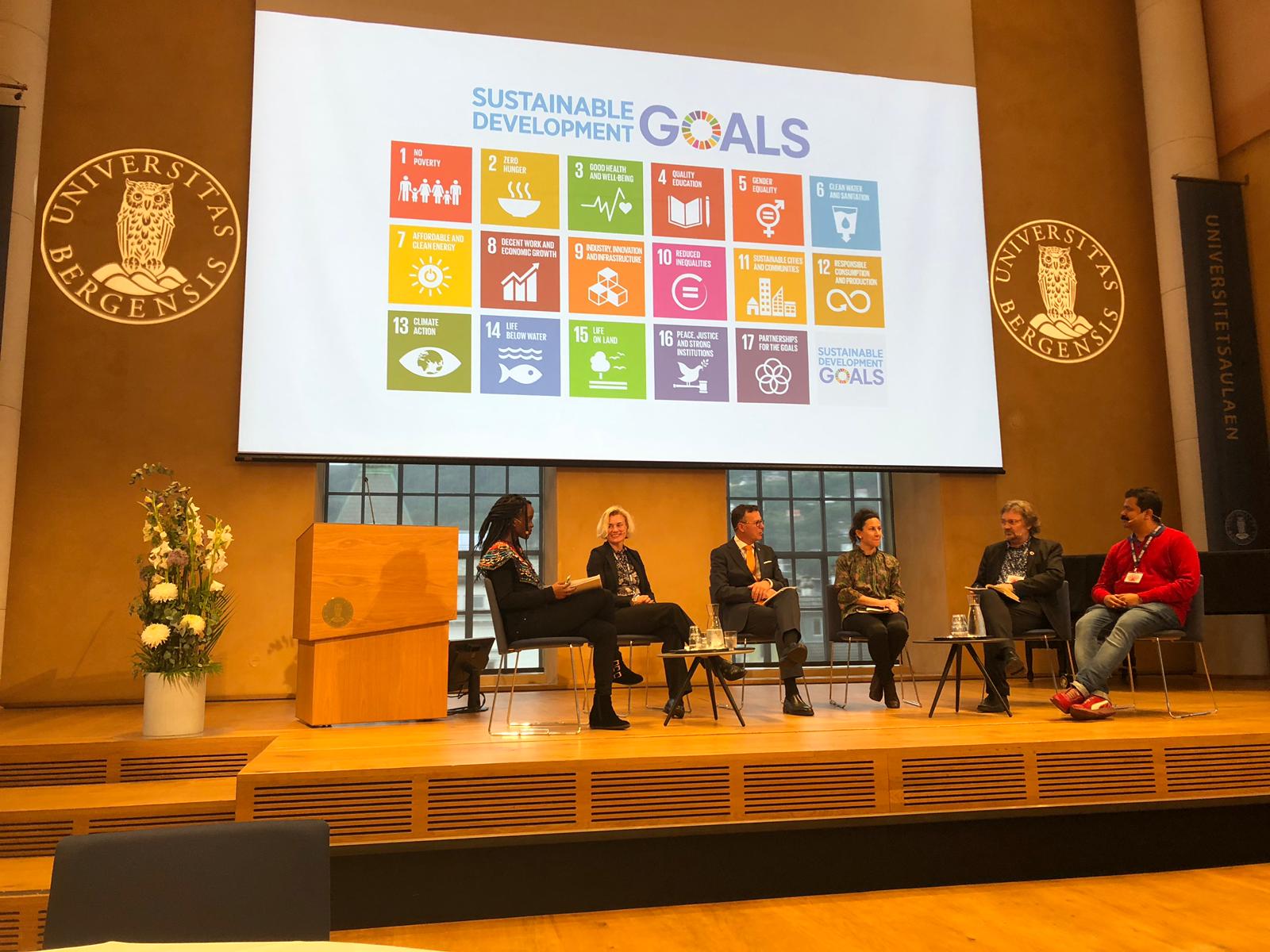Course: Migration Processes and Practices: Theories, methods and ethical conduct
Bergen Summer Research School (BSRS) welcomes 100 PhD candidates every year to participate in a variety of courses aimed at addressing key global challenges through high quality disciplinary, interdisciplinary and problem oriented research-based education. Some of the members of the IMER junior scholar network attended BSRS2019’s course ‘Migration Processes and Practices: Theories, methods and ethical conduct’. In the following you will get an impression of what the participants experienced during the summer school.
Cutting-edge scholarship:
Our course leader, Synnøve Bendixen, did a fantastic job organizing a very well designed course schedule with eminent lecturers like Ruben Andersson (University of Oxford), Ann Singleton (University of Bristol), Cindy Horst (PRIO), Jessica Schultz (Chr. Michelsen Institute), Hakan Sicakkan (University of Bergen), and Sarah Tobin (Chr. Michelsen Institute). They lectured and engaged us in discussions about a variety of topics. Andersson advocated for a shift of focus from migrants as the problem, directing our attention to the role of institutions and systems. Singleton shed light on the important issue of climate change and migration, while Horst and Schultz organized group work to encourage discussions about ethical dilemmas in our research as well as the complexities of refugee law. We even got to participate in a role play acting out different roles in court cases on refugee issues. Sicakkan guided us through the political use and misuse of the UN Global Compacts on Migration and Refugees, and finally, Tobin lectured on Syrian Refugees in Jordan with a focus on the process from crisis to (re)settlement. We also got to meet the visual artist and activist Banu Cennetoğlu, who has created The List, which traces information related to the death of more than 36.570 refugees, asylum seekers and migrants who have lost their lives within, or on the borders of Europe since 1993. By using public display structures such as ad-boards and newspaper supplements, Cennetoğlu has made the information visible to people. Our colleague, Kari Hagatun, has translated The List into Norwegian.
As participants, we were able to present our research projects. The lecturers mentioned above were also present during these sessions. As such, we received very valuable feedback both from peers and senior scholars.
Research dissemination and influence on policy:
One of the aims for this year’s summer school was to reflect on how our research can contribute to securing a sustainable future, recognizing the important role researchers play in the interface between science and policy making. Several key-note lectures were dedicated to this issue, among them Kikki Kleiven from the Department of Earth Science, University of Bergen, who provided us with valuable advice on how to present our research in order to have outreach beyond academia. Svein Bæra from the Ministry of Foreign Affairs of Norway, followed up by guiding us into the world of diplomacy and teaching us some tricks in order to become scientist influencers.
However, the most challenging and fun exercise was the Science Diplomacy Presentations. These sessions were organized as multilateral United Nations meetings, where state parties and other representatives give statements to a panel. Each participant presented a two-minute prepared statement on how a certain aspect of our own research can contribute to the support and implementation of one or more Sustainable Development Goals (SDGs). A chaired panel consisting of two diplomats (Svein Bæra and May-Elin Stener from the Ministry of Foreign Affairs of Norway) and one scholar (Edvard Hviding, Department of Social Anthropology, UiB) provided a brief response.
International networking:
After ten days together, we really had the chance to get to know each other, as well as to exchange information and knowledge about our common field of interest. And we were able to make wide international connections with other PhD candidates from all over the world. Some of the participants have agreed to write guest posts on our blog, so stay tuned for updates! The summer school was also an excellent opportunity for starting to build a network on PhD-level in a national and Nordic context. Other participants who work with migration-related issues either in Norway or linked to the Norwegian context were invited to the one-day conference that we will organize this upcoming fall.
Blog post written by Ann Cathrin Corrales-Øverlid

Be First to Comment